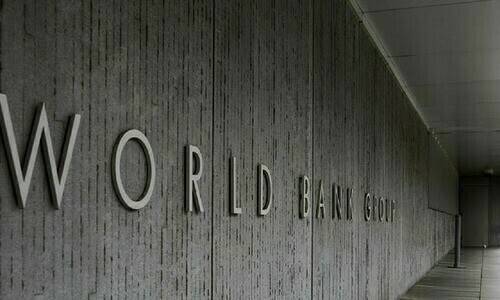
The World Bank's January 2024 report predicts Pakistan's economy will grow at a sluggish 1.7% this fiscal year.
The bank attributes this sluggish growth to prolonged global economic challenges, coupled with contractionary fiscal policies and tight monetary measures aimed at containing inflation.
Political turmoil in Pakistan is identified as a significant factor contributing to weak confidence, resulting in slow growth in private demand. The report suggests that as inflationary pressures ease, growth is expected to pick up to 2.4% in the fiscal year 2025.
The report also highlights the global economic landscape, describing the ongoing decade as a "wasted opportunity" with a "dark" outlook beyond the next two years. Global growth is anticipated to slow for the third consecutive year, and developing economies are estimated to grow just 3.9%, over one percentage point below the average of the previous decade.
Moreover, the report notes that Pakistan's economic output contracted by an estimated 0.2% in FY23 due to the impact of the 2022 floods and increased political uncertainty.
While the rupee showed signs of stabilization by late 2023, rising food prices are identified as a risk, disproportionately affecting poorer households and potentially increasing poverty and inequality.
The report also discusses the outlook for the South Asia Region, with concerns about the potential impact of political and social unrest on economic growth in several countries, including Bangladesh, Bhutan, India, Maldives, and Pakistan.
